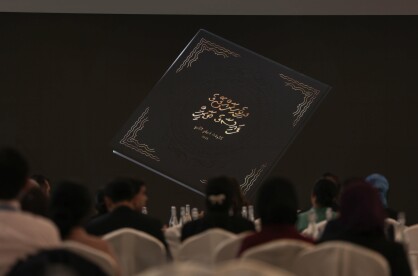The Maldivian economy, heavily reliant on foreign currency due to its import-dependent nature and tourism-driven revenue, has long grappled with challenges in managing foreign exchange reserves. To address persistent issues such as the continuous dollar shortage which had led to a lack of U.S. dollars flowing within the Maldivian economy, the administration decided to introduce significant amendments to the Foreign Currency Bill. The amendments announced in late 2024 were pivotal measures aimed not only at addressing the persistent dollar shortage but also at integrating the Maldivian tourism industry into the circulation of U.S. dollars within the national economy.
Although the Foreign Currency Bill received majority support, the Maldives Monetary Authority (MMA) took an inclusive approach by inviting public comments on the draft bill on November 26, 2024, allowing stakeholders to provide input and ensure greater transparency in the legislative process. Following the comments, on December 9, 2024, MMA introduced new rules and exemptions for foreign currency transactions, deposit requirements, conversion categories, and penalties for non-compliance. The key updates are as follows:
Updated exemption list for foreign currency transactions
The exemption list has been expanded to include the following:
- Transactions in the domestic securities market
- Buying and selling of shares of a business that earns income in Foreign Currency, the issuance of bonds or sukuk and transactions between that business and its bond/sukuk holders
-Payment obligations arising from a verdict or order by a court, tribunal or arbitration proceedings
-Other payment obligations and transactions defined in the regulations under the legislation
Additionally, Section 5 specifies that Maldivians cannot be required to make foreign currency payments for transactions not listed under these exemptions unless mandated by the state or financial institutions in compliance with the bill.
Deposit Requirement
Entities earning foreign currency are now required to deposit their realised sales proceeds into local bank accounts, with specific rules for different sectors:
- Tourism Sector: All entities providing tourism goods and services must comply.
- Non-Tourism Sector: Entities (excluding financial institutions) that earned at least USD 15 million in the past calendar year are included.
As it was stated since the drafting of the bill during the initial stages, the deposits must be made by the 28th day of the third subsequent month. The proceeds can be deposited in any approved foreign currency at a local bank authorized by the Maldives Monetary Authority (MMA).
Conversion categories, requirements, and exemptions
New rules outline mandatory conversion requirements for tourism and non-tourism entities as follows:
Conversion Categories
- Category A: Includes resorts, integrated tourist resorts, private islands, and resort hotels. These establishments must convert either USD 500 per tourist or 20% of their monthly gross sales proceeds.
- Category B: Covers tourist vessels, tourist hotels, and tourist guesthouses. These entities must convert either USD 25 per tourist or 20% of their monthly gross sales proceeds.
- Non-Tourism Entities: Non-tourism businesses earning at least USD 15 million annually must convert 20% of their monthly gross sales proceeds.
Deadline: The same as the deposit requirement — the 28th day of the third subsequent month.
Under the revised conversion requirements, both Category A and Category B entities, along with non-tourism entities, now have greater flexibility in meeting their payment obligations. Previously, entities were required to convert a fixed amount based on their designated category. However, with the recent amendments, they can now opt to convert either the specified fixed amount or a percentage of their gross sales proceeds. This adjustment allows the government to maintain its objective of enhancing the U.S. dollar flow within the Maldivian economy through the tourism sector, while providing businesses with the flexibility to choose between a fixed rate per head or a percentage of their gross sales, depending on their financial circumstances.
Conversion Exemptions
Specific exemptions apply, including:
- Tourists staying less than 24 hours at an establishment.
- Children under 10 years old.
- Guests staying free of charge or on a complimentary basis.
- Guests with special consideration provided by the government.
The conversion exemptions for specific groups are granted special consideration by the government, offering significant benefits to tourism businesses. These exemptions ensure that resorts and other establishments are not required to bear additional conversion costs for these categories of travellers, who often represent non-revenue-generating segments or guests with unique circumstances. In addition to these groups, the Government has also excepted vessels registered outside the Maldives from conversion requirements.
Additional conversion exemptions to be reviewed on a case-by-case basis remain broadly unchanged. It is worth noting that businesses may apply for exemption on the mandatory conversion rule in case there is a shortfall based on the following circumstances:
- Paying taxes in foreign currency and other FC obligations to the Government
- Making credit payments to financial institutions in foreign currency.
- Financial obligations in foreign currency pursuant to a verdict or order by a court, tribunal or arbitration proceedings
- Other approved foreign currency obligations.
Penalties for Non-Compliance
Strict penalties have been introduced for breaches related to transfers, deposits, and conversions:
Transfer/Deposit Penalties
- Monthly fine: Up to 0.25% of the amount to be transferred/deposited.
- Daily fine: Up to 0.25% of the amount, until compliance is achieved.
Conversion Penalties
- Monthly fine: Up to 0.5% of the amount to be converted.
- Daily fine: Up to 0.5% of the amount, until compliance is achieved.
Other Penalties
- Fines ranging from MVR 10,000 to MVR 1,000,000, depending on the severity of the breach.
Additional Measures:
- The MMA has the discretion to collect fines in foreign currency.
- If non-compliance exceeds 90 days, government institutions may be instructed to withhold licenses issued to the entity.
- MMA may pursue penalties through court proceedings, with a resolution timeline capped at 180 days.
- MMA has the right to give fine relief in accordance with regulation
The latest amendments to the Foreign Currency Bill strike a balance between promoting economic stability and supporting the growth of the tourism sector in the Maldives. These changes have addressed some of the major concerns showcased by major tourism industry stakeholders as they expressed concern over the fixed rate, while also sticking to the Government plan to hold the industry more accountable when it came to the contribution it made towards the U.S. dollar flow within the Maldives’ economy. By introducing flexible conversion requirements, targeted exemptions, and streamlined deposit rules, the government ensures that businesses in the tourism industry can continue to operate profitably while contributing to the national economy.







